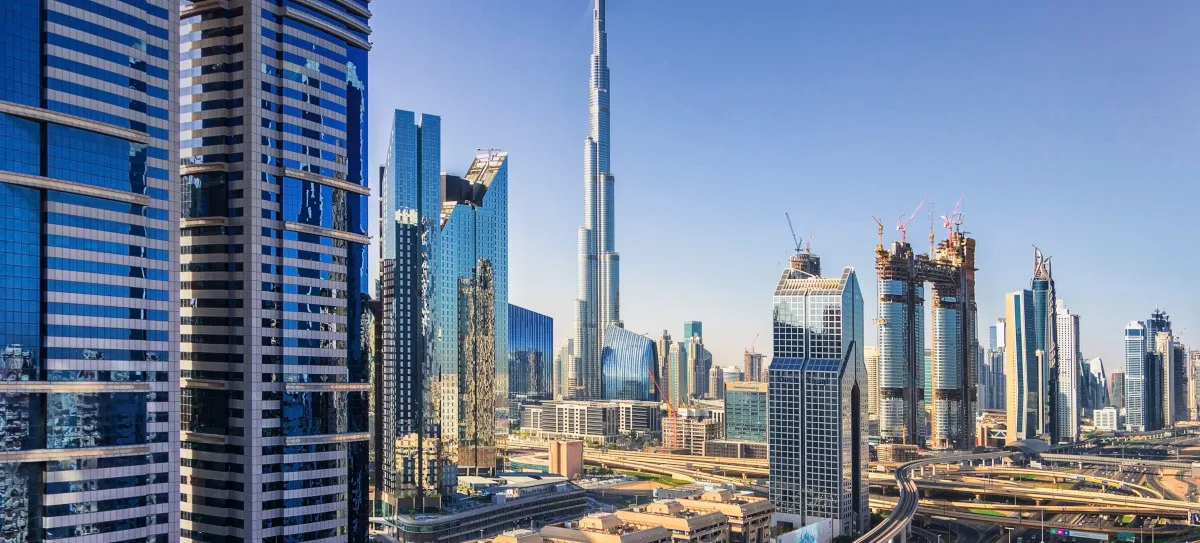One of the most alluring places in the world for professionals looking for luxury, cultural diversity, and career advancement is Dubai. It’s hardly surprising that thousands of people relocate to Dubai every year, given the country’s beautiful skyscrapers, lack of income tax, and innovative yet traditional way of life. However, there is still a crucial question: what is the actual salary required to live comfortably in Dubai?
Your lifestyle, housing preferences, and family circumstances all influence the answer. Rent, groceries, healthcare, and education are all broken down in this blog post to help you determine how much money you need each month to live a life beyond survival.

Understand the cost of living in Dubai
Although wages in Dubai can be attractive, it is important to understand the complete picture of living costs. Housing, food, transport, and personal expenses help to define a “comfortable” life in this city with this stirring.
One of the most asked questions is: Is 8000 AED a good salary in Dubai? The answer depends on your lifestyle options. For a person with less need, 8000 AEDs may be sufficient. However, if you support a family, rent a private apartment, and aim to save, this amount can be reduced.
Let’s find out specific monthly costs to understand what is really “comfortable” in Dubai.
Housing: Your Biggest Monthly Expense
Housing in Dubai can vary from solid budget to ultra-luxury. Below is a rough breakdown of average rents in a primary location in Dubai:
- Studio Apartment in Deira or Al Nahda = AED 2,500 – AED 4,000
- 1-Bedroom flat in Dubai Marina or Downtown = AED 6,000 – AED 10,000
- 2-3 Bedroom Villa in Arabian Ranches or Mirdif = AED 10,000 – AED18,000
Most tenants will sign a 12-month rental agreement and offer 1–4 post-dated cheques. As the market has shifted and developed, some “younger” landlords will accept monthly payments anymore. Sharing an apartment is also a great way for people to lower rental costs.
Utilities and Internet
Utility costs will typically vary based on your apartment size and personal usage:
- Water and Electricity (or DEWA) = AED 300 – AED 800/month
- District Cooling (or Chiller Fees) = AED 200 – AED 400/month
- High-Speed Internet + TV = AED 300 – AED 500/month
Depending on how much your twenty-four-hour air conditioning operates all day through the summer heat (and you probably should), the cooling costs could flourish.
Transportation
Public transportation in Dubai is cheap and reliable. The Dubai Metro has reasonable, cheap, and wide-ranging access.
- Monthly Metro/Bus Pass = AED 270 – AED 350
- Petrol (only if you have a private car) = AED 250 – AED 450/month
- Car Loan & Insurance (not that you must) = AED 1,000 – AED 2,000/month
Car ownership adds convenience, but there are additional costs (safety, fuel consumption, etc.).
Groceries and Eating Out
Your grocery bill is dependent on how much food you eat at home and how much you dine out.
- Monthly groceries for one person: AED 1,000- AED 1,500
- Casual meal at a local restaurant: AED 25- AED 50
- Dinner for two at a fine dining restaurant: AED 300- AED 600
International supermarkets like Spinneys and Waitrose are filled with premium imported items, while other options like Lulu and Carrefour are more economical.
Health Care and Insurance
Do note that health insurance is compulsory for all residents in Dubai. It’s unlikely that you will pay for any of the basic health care, as your employer is supposed to provide that.
- Out-of-pocket doctor visit (without insurance): AED 300- AED 600
- Health insurance (if you have no employer-provided insurance): AED 700-AED 1,200/month, depending on what insurance coverage you get.
There is amazing medical care available in Dubai with great physicians. However, private care can be expensive without insurance.
Schools and Childcare
For families, schools can turn out to be one of the costliest expenses:
- School fees per annum: AED 15,000- AED 100,000
- Further costs include uniforms, transportation, and activities.
British, American, and IB curriculum schools are usually the costliest.
Varied Salary Levels and Lifestyle Scenarios
What defines a “comfortable life” is subjective, as it varies from person to person. For example, a young, single expat may consider their comfort as renting a studio apartment, eating out occasionally, and going on two trips a year, whereas a family with four kids may define their comfort as private school for their children, a villa, two cars, and weekends away.
The Importance of Employer Benefits
The benefits package offered by your employer can play an important role in assessing the sufficiency of salary and typically includes:
- Housing or housing allowance
- Health benefits (for the employee and family)
- Education allowance
- Annual round-trip tickets
- Transportation allowance or company car
A salary that sounds reasonable can go much further if complemented by a competitive benefits package.
Is Dubai Affordable in 2025?
In 2025, Dubai continues to be an appealing city for professionals from around the globe due to its zero-income tax, excellent infrastructure and services, and spectacular cultural diversity. But inflation, rent increases, and lifestyle inflation are going to play a role in how far your salary goes.
Some of the main elements that affect affordability:
- Rent Increases – In sought-after areas, rent on residential properties have increased as much as 15% year on year.
- Lifestyle Choices – You can easily blow through your salary with dining out, nightlife, shopping and luxury services.
- Savings Culture – So many expats think it will be easy to save money, but the harsh reality is that with a good salary comes high living costs and a consumer culture that is hard to resist.
Skills for Living Well on a Budget
If you want to live the type of lifestyle you want and remain in the financial position of value, you might take the following tangible steps:
- Negotiate your Full Benefits Package before signing your contract.
- Pick your location wisely – there are areas like Al Nahda, Discovery Gardens, and Jumeirah Village Circle (JVC) with affordable rent.
- Track your money spending and consider apps that will help you manage your monthly budget.
- If you are able, avoid personal transport and be mindful of car-related expenses.
- Avoid debt traps, including credit cards with high-interest repayments, living beyond your means, or obtaining unnecessary loans.
In Dubai, what is a comfortable salary?
This is a condensed guide on the lowest monthly income required in Dubai to live comfortably:
| Lifestyle Type | Comfortable Monthly Salary (AED) |
| Single (Basic) | 8,000 – 10,000 |
| Single (Upscale) | 15,000+ |
| Couple Without Kids | 15,000 – 20,000 |
| Family (1–2 Kids) | 25,000 – 35,000 |
In the end, your lifestyle, financial objectives, and the benefits provided by your employer will determine whether 8,000 AED is sufficient in Dubai. It’s manageable for a thrifty, single foreigner. That being said, a higher salary—ideally more than AED 15,000—is advised if you want to live well, save money, and take advantage of everything Dubai has to offer.
In Conclusion
Dubai offers a great quality of life, if you can afford it. Dubai is an opportunity city—but it is also a city of choices. Whether your salary is AED 8,000 or AED 30,000 per month, the quality of your lifestyle depends on your individual choices. It’s all about doing your research and understanding the costs associated with moving, the salary expectations that may be realistic, the cost of living and potential benefits from your employer. If you do your proper due diligence and know what you are getting in to, you will enjoy your time in this fast-paced city.








